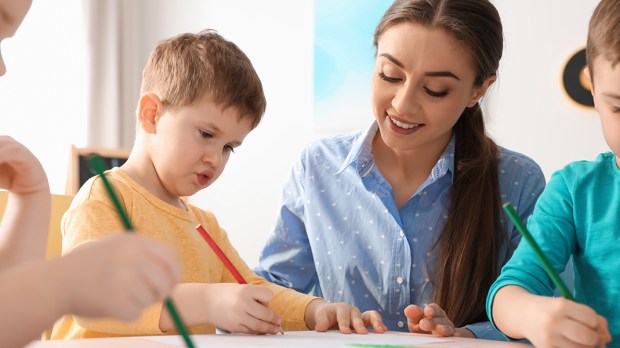Why is it that “good job!” feels like the default phrase for praising a child? “Good job putting away your toys!” “Good job drawing that picture!” “Good job sharing with your friend!”
But scholars say that “Good job!” is not the most meaningful way to praise a child. Next time you want to give supportive feedback and comment on helpful behavior, try one of these strategies instead.
1Describe what you see
“Sportscasting” or describing what your child is doing is a very effective way to make your child feel seen and acknowledged. You might say something like, “You did that by yourself! You reached up high and put the dirty laundry in the hamper. There were a lot of toys on the floor, and you put them all in the basket!” It almost seems too simple, but this kind of “praise” is actually more meaningful than another generic “Good job!”
2Praise your child's effort
You’ve probably heard the slogan “Praise effort, not outcome,” and while the reality is more nuanced, it is true that children learn the value of hard work and trying their best when you encourage them to give their best effort. You might say things like, “You worked really hard on that! Wow, I see how you are trying your best.”

Read more:
Do you know how to truly encourage your children?
3Discuss your child's work
Your child brings you yet another artistic masterpiece, and it’s easy to respond with a quick glance and comment: “Good job, honey!” But you might love the response if you take a moment to discuss and ask questions about their work. You might say something like, “Tell me about your picture. What did you like about making this? What was your favorite part to draw?” Chances are good their answers will surprise you, and will be interesting and thought-provoking to hear!
4Call attention to their feelings of accomplishment
The truth is that adult praise after a child’s big accomplishment is often “gilding the lily,” as most likely the child is already feeling very proud of the achievement. Instead of piling on compliments, you might try calling attention to how your child is feeling, saying something like, “How do you feel about making that? Do you feel proud that you did that all by yourself? I bet it made you feel good inside to share with your sister.”
5Point out the effect their work had
When your child is kind and helpful, point out how it makes others feel and the positive outcomes it has for the rest of the family. You might say, “I noticed that it made your brother so happy when you read him that story. You cleaned up your room so quickly that we have time for a family movie tonight! Thank you for putting away the markers, you really helped me out. The playroom looks so nice since you put away your toys.”
What’s your favorite way to encourage your child?

Read more:
How can we teach our children willpower?

